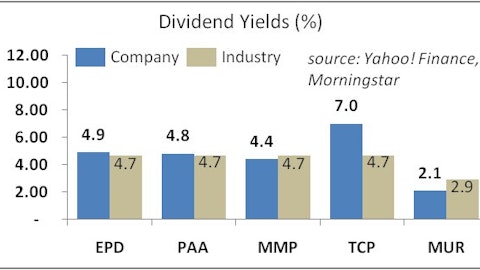
When Retail Opportunity Investments Corp (NASDAQ:ROIC) formed as a special purpose acquisition corporation (SPAC) with an IPO 2007, the SPAC practice was to issue stock, warrants, and units — a combination of stock and warrants. At the IPO and later when ROIC announced its move to a REIT model in late 2009, it had issued 49.4 million warrants, including8 million to the SPAC founders. At the end of 2012, only 1,000 warrants had been exercised for cash.
Today, the company announced that 57.3% of the warrants have been exercised for cash by investors for $12 a share or $162 million and on a cashless basis by the SPAC founders. From 1,000 to this is, ahem, news. Exercise of the remaining would bring in about $253 million. However, the company purchased 7.8 of the warrants themselves at $1.38, an 18% premium to yesterday’s $1.17 close and implying a $13.38 stock price.
Expiring 18 months away on Oct. 23, 2014, the warrants offer both potential shareholder dilution — included in diluted EPS calculations already — and cash for investment. However, if management invests the cash for higher returns, the dilution could be a wash — what every executive in similar situations promises will be “accretive” but rarely is. Meanwhile, despite a steady stock rise, uncertainty over the warrant status has most likely — and management agrees — prevented even more gains from yesterday’s $13.18 a share close.
Potential near-term gains
A possible $18 and up could well come with the warrant overhang removed based on comparables. While there are roughly 25 REITs loosely in the strip mall, shopping center and mall spaces, Regency Centers Corp (NYSE:REG), Acadia Realty Trust (NYSE:AKR), Kimco Realty Corp (NYSE:KIM), and Retail Opportunity Investments Corp (NASDAQ:ROIC) are most similar because they specialize in grocery-anchored centers.
| Company ($ millions) | LTM AFFO* | Market Cap | Market Cap / LTM AFFO | Dividend Yield | Total Debt to Total Assets | Tangible Book Value % of Price |
|---|---|---|---|---|---|---|
| ROIC | $39 | $764 | 19.6 | 4.6% | 43% | 85% |
| Kimco Properties | $514 | $9,000 | 17.5 | 3.8% | 43% | 51% |
| Regency Centers | $221 | $4,786 | 21.7 | 3.1% | 50% | 29% |
| Acadia Realty Trust | $49 | $1,486 | 30.5 | 3% | 38% | 41% |
Sources: S&P Capital IQ and my calculations. *AFFO is adjusted funds from operations, which is the equivalent of operating cash flow minus maintenance capital expenditures, and is considered the amount available for the REIT to payout.
The case for an increased ROIC valuation has three parts. First, though its market cap-to-LTM AFFO multiple is less than all but one, and seems not exactly low, ROIC offers the highest yield by far, and all else equal should sell for more. This supports the case that “something is holding it back,” in which the “something” is likely the warrant overhang.
While the debt to asset percentages are at or near the 50% we’d like ROIC not to top, and Acadia has room to grow, the clear winner for margin of safety is Retail Opportunity Investments Corp (NASDAQ:ROIC), selling at a whopping 85% tangible book at a percentage of share price. This indicates far higher asset protection than any of the others.
Retail Opportunity Investments Corp (NASDAQ:ROIC) is what you buy if you want hard asset based downside protection so paying peanuts for the upside. Who doesn’t? These are very good reward-to-risk odds.




